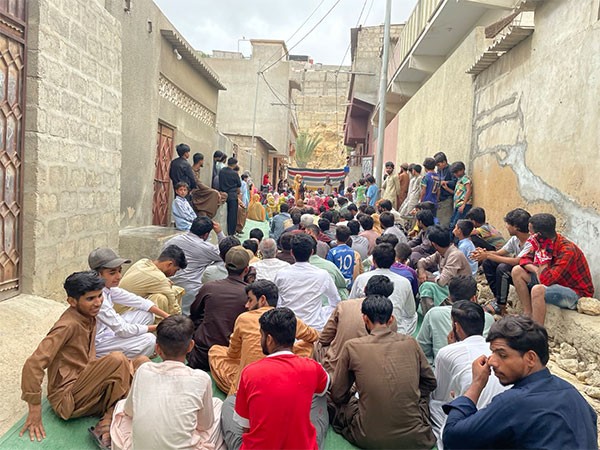Five killed in violent anti-quota protests in Bangladesh
Jul 17, 2024
Dhaka [Bangladesh], July 17: At least five people were killed and scores injured across Bangladesh as young government supporters and police firing tear gas clashed with students protesting against a quota system for government jobs, police said.
Tens of thousands of students joined nationwide protests for a second day after more than 100 people were injured on Monday in rallies that blocked major highways and rail links.
They are the first significant protests against Prime Minister Sheikh Hasina's government since she won a fourth straight term in January.
The protesters are angry over public sector job quotas, including a 30% quota for family members of freedom fighters from the 1971 War of Independence, amid high youth unemployment.
Riot police fanned out at university campuses across the country in an effort to quell disturbances.
In Rangpur in northwestern Bangladesh, the protests turned violent, police told Reuters.
"We had to use rubber bullets and teargas to disperse the unruly students who were hurling stones at us," Rangpur Metropolitan Police Commissioner Mohammad Moniruzzaman said.
"We heard a protesting student died after he was taken to hospital. It was not immediately clear how he died," he said.
In the capital Dhaka, TV footage showed a heavy presence of police, wearing protective vests and helmets and armed with wooden sticks, outside the Dhaka University campus.
One student was found lying in a pool of blood and declared dead at city hospital, police said.
Three people, including two students, were killed in the port city of Chittagong.
"We are not sure how they were killed as we didn't use any force in Chittagong," local police chief Saiful Islam said.
The Border Guard Bangladesh paramilitary force was deployed across the country to tighten security as clashes continued in several places, the force said.
Stagnant job growth in Bangladesh's private sector has made government jobs, which offer regular wage hikes and other privileges, more attractive, said Mohammad Abdur Razzaque, chairman of Research and Policy Integration for Development.
Nearly 32 million young Bangladeshis are not in work or education, he said.
In Bangladesh, 56% of government jobs are reserved for various quotas. Ten percent are reserved for women, 10% for people from underdeveloped districts, 5% for indigenous communities and 1% for people with disabilities.
Violence erupted on Monday when thousands of anti-quota protesters clashed with members of the student wing of the ruling Awami League party.
Protesters have planned more marches and rallies nationwide and demonstrations will continue until their demands are met, said Nahid Islam, the coordinator of the anti-quota protests.
Protests began earlier this month when the High Court ordered the government to reinstate the 30% job quota.
The Supreme Court suspended the order last week for a month but protests continued and they intensified after Hasina refused to meet the students' demands, citing ongoing court proceedings.
Hasina labeled those opposing the quota as "razakar" - a term used for those who allegedly collaborated with the Pakistani army during the 1971 war - prompting more protests.
Source: Fijian Broadcasting Corporation








